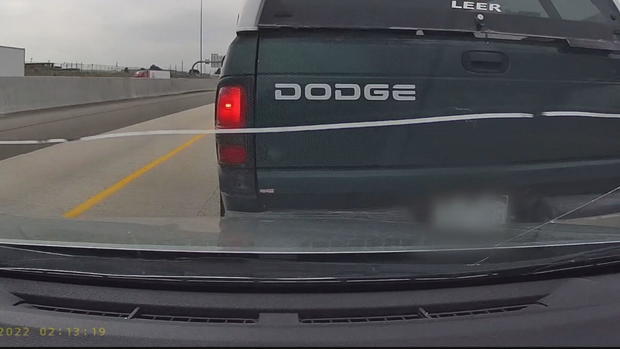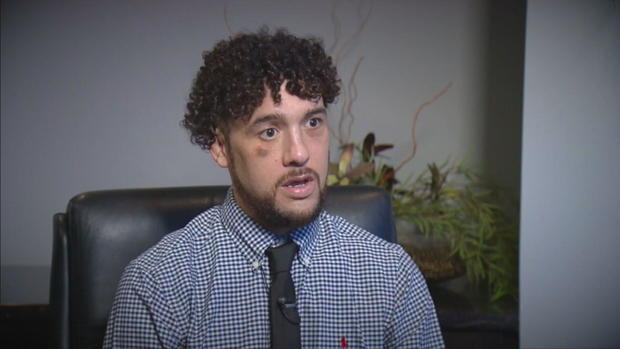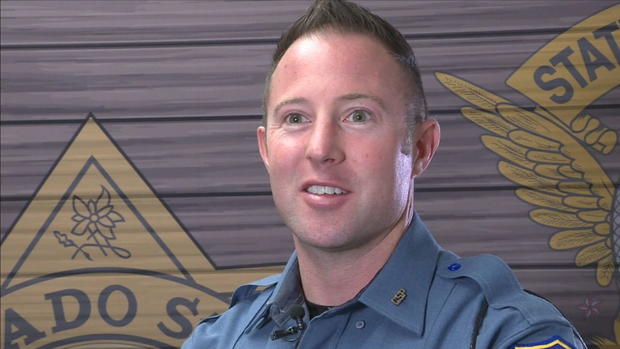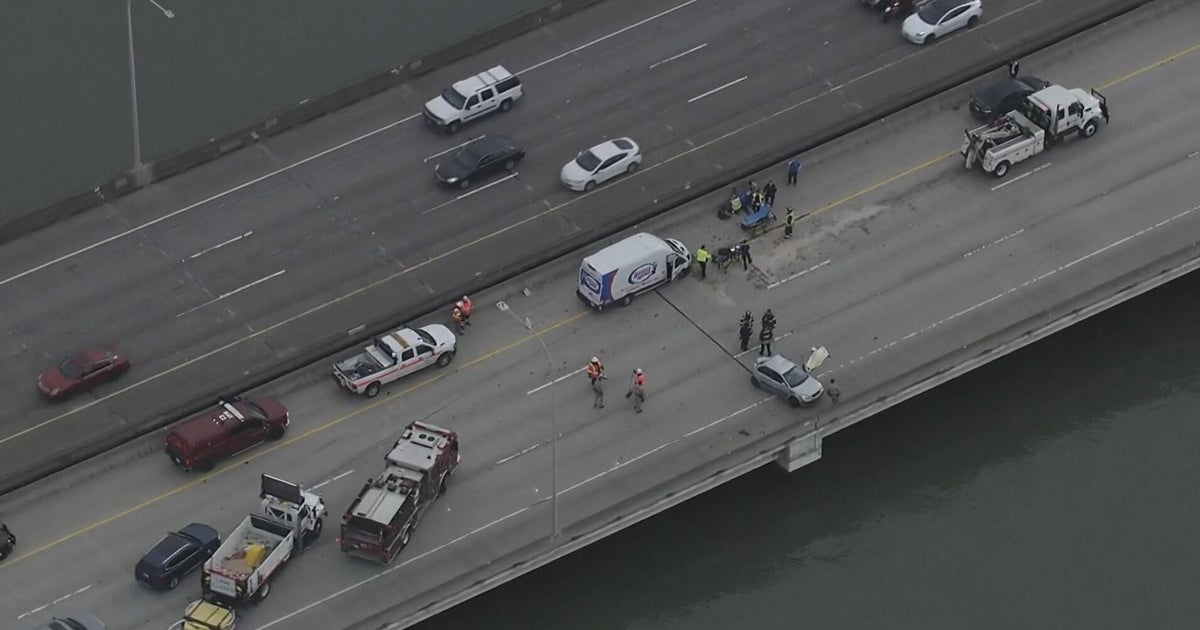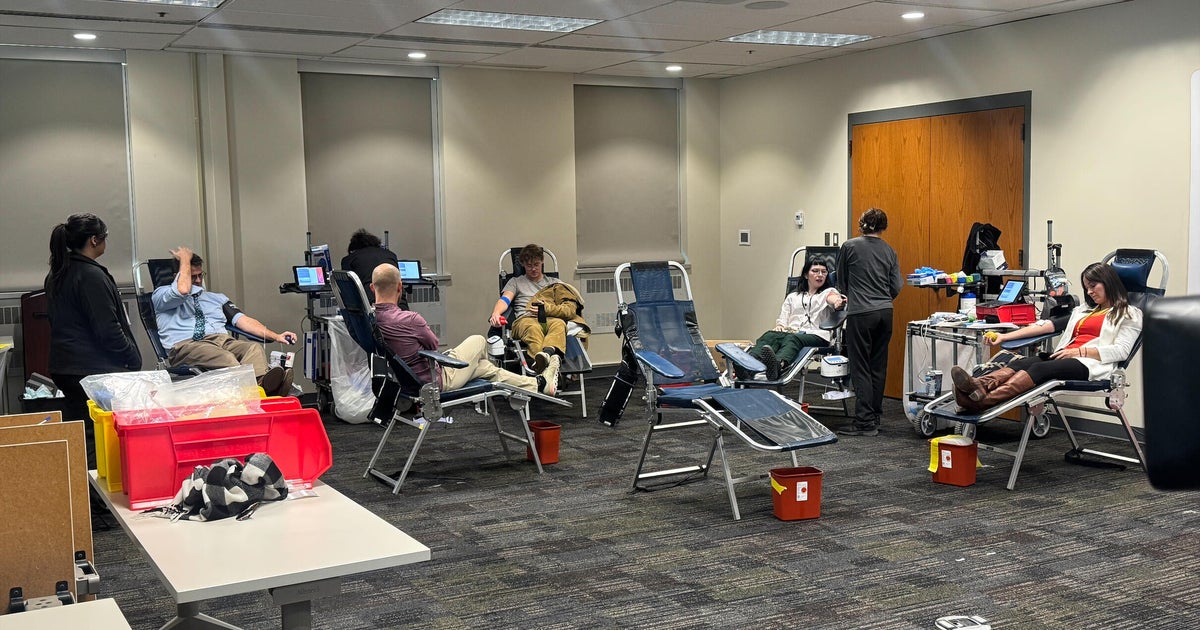Road rage on the rise: Aggressive driving fatal crashes in Colorado have nearly doubled in five years
Ask anyone on the street, and most will say it seems like tempers are running higher on the roads than ever before, with "road rage" getting out of hand. The CBS News Colorado Investigative Team has found there's data to back that up — state data shows in Colorado, the number of people dying and being seriously injured in aggressive driving crashes has nearly doubled over the last five years.
Colorado Department of Transportation data shows in 2016, 252 people were seriously injured in the state due to aggressive driving crashes, but five years later in 2021, that number nearly doubled to 399. Fatalities are up too, last year 108 Coloradans died in crashes caused by aggressive driving.
It's not just a Colorado problem. Nationwide, fatal car crashes, in general, have surged, and it's the same case for deadly road rage crashes across the country.
Another nationwide problem Colorado is also experiencing is the increase in road rage shootings. Nationwide, 522 people were either killed or injured in road rage shootings last year. In 2016, that number was only 239, according to data from Everytown.
A road rage shooting on I-70 in Denver this August killed 31-year-old Kevin Piaskowski as he was driving home from work.
Another driver's dash cam captured the senseless shooting. His fiancé told CBS News Colorado his life was cut short "for no reason."
"I can't wrap my head around it, they stripped multiple people of an entire future together," she told CBS News Colorado.
A 17-year-old was arrested for firing the shots.
In September, a 16-year-old was shot and injured by someone in a passing car on Highway 85 in Weld County.
Police are still searching for a suspect.
And in April, two teens and a father of three children were killed after another unknown driver opened fire on Peoria Street, south of I-70 in Denver.
"Due to somebody's negligence, my kids don't have a father, I don't have a husband," the man's wife, Misty Reyes, said.
Rideshare driver Jack Girard tells CBS News Colorado he's thankful to be alive after a road rage collision a few weeks ago. It happened on I-70 in Denver, when he was driving a passenger home from the airport.
"I was passing the person in the right-hand lane. A driver from behind was speeding and came probably 90 miles an hour from behind us on I-70," Girard recalled. "They didn't have a way to pass, because I was passing at that moment. So they should have waited a second to pass, but instead, they went right on the shoulder and passed both of us illegally on the shoulder, which was terrifying, and then he flew back in front of us, without even using a blinker, and slammed on his brakes, and caused the accident."
Girard's dash camera caught the whole incident.
"I thought, 'he's out of control, he's crazy,'" Girard said. "I didn't know what was going on."
The driver took off, but Girard's lawyer later tracked him down, thanks to the dash cam video, and now they're filing suit.
"It could have been a lot worse. It could have been deaths involved," his attorney, Jordan Levine, told CBS News Colorado. "Just aggression, true aggression on the highway."
Levine says he's been getting more and more road rage cases like Girard's.
"I'm very concerned. I'm very concerned for me and my family, coworkers, friends, everybody, because it is it is now getting out of control," Levine said. "People need to really calm down and not take offense when somebody makes a mistake."
Related: The psychology behind the rise of road rage
Colorado State Patrol says more people call in to complain about road rage every year than about drunk drivers.
Last year, the agency received 37,769 road rage complaints statewide, and so far this year, the agency has gotten 24,723 complaints — on track to meet last year's numbers. Conversely, last year there were about 31,000 drunk driving complaints, and so far this year, there have been more than 19,000.
"That's a big number," Girard said. "Driving for Lyft, I can attest to that. I see it all day every day, and so I could call in every day with a road rage incident."
Sgt. Troy Kessler with CSP says the agency does its best to investigate those complaints.
If it doesn't have a trooper in the area of the complaint, the agency may call the driver that was being complained about to give them a verbal warning, or troopers may even show up at their door.
"I want them to be shocked, I want them to be surprised, and second guess that decision next time," said Kessler. "I've contacted people at home, and they've been drunk, and they admitted to driving just getting home, and it's just through that investigation that I can place them in that seat and do something about it. Other times, it's just that warning, and getting them to drive safer and drive better on the roadways, and just be more considerate of other people."
But CBS News Colorado found of the more than 37,000 road rage complaints last year, only 1,159 resulted in a phone or in-person contact, and only 169 of those contacts resulted in some sort of enforcement action like a citation or arrest.
Asked about the low numbers in response to complaints, Kessler stressed the complaints are still an incredibly useful tool for CSP to crack down on aggressive drivers.
"You can only get away with it for so long," Kessler said. "Eventually it will catch up to you."
He says it's important the community continue to call the *CSP hotline when they see someone acting out of control on the highways.
"We don't want people to get discouraged. We want them to call us, *277 is always available," Kessler said. "State patrol cannot be everywhere at once. We need the eyes of our community out there. We need them to help us, and they've helped us a number of times."
Over the years, complaints to *CSP have dropped, but Kessler doesn't think that means incidents on the roads have declined, but instead that fewer people are reporting what they see.
"I think it's very evident just by driving on our roadways, that aggressive driving, speed, distractions, they're all on the rise," Kessler said. "Even if we can't do anything about it, then the thing is it's logged that we have had contact, and we've had this vehicle reported before, and on top of that, it's just important for us to know how big the issue is, even if we can't do something today."
He says another barrier in making an arrest or issuing a ticket on the complaints is that often times the person making the complaint doesn't want to get involved any further.
"People that see this stuff happen and report it, there is an element of hesitancy in getting involved because they don't want to see some ramification come down the line from the reporting party," Kessler explained.
"Part of that process is are they willing to go to court, can they identify the other driver? But there is that hesitancy, and we don't want people to be hesitant to call us though, they can be anonymous, that would just limit our investigation, or what we could use in our investigation, but ultimately, we can still investigate it, and they can remain anonymous," he continued.
Despite those challenges, Kessler says CSP is working to be proactive instead of reactive, rolling out a "Stay in Your Lane" enforcement campaign this fall, and another road rage-specific campaign starting in January, in which drivers can expect increased patrols on highways and more public service announcements reminding them to drive safely.
"That's our mission with the state patrol, prevent those deaths from happening on the roadway," Kessler said.
Federal highway safety studies show enforcement campaigns can be effective to curb aggressive driving.
"You got to humble yourself enough to say I need to evaluate my driving and I need to make some changes because it all starts with us," Kessler said.
Girard hopes that will prove true in the Centennial state.
"Driving is a life or death task, and I don't think people are taking it as serious as they should," Girard said. "It's becoming more and more of a problem, and it's something that I think we can address and I think we can do something to prevent it, and I think that goes to law enforcement as something they can do.
Public policy researchers agree that PSAs and stepped-up enforcement can help.
Click here to see CBS News Colorado's second story in this two-part series, which further examines the reasons behind the rise in road rage and other possible solutions. CBS News Colorado spoke with a psychologist studying road rage about ways you can diffuse heated situations on the roads.
